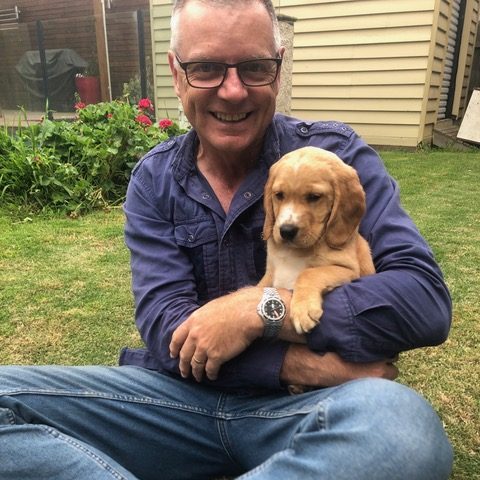Everyone these days seems pretty sure they’re right, no matter which side of any given debate they are on. There doesn’t seem to be anyone publicly saying “I’m not sure,” or “I don’t know.”
Certainty is a very comforting thing. It means you can get on with your “plan A.” Whatever hopes and dreams you may have now or in the future, you can, if you have the drive, set about achieving them.
So, if you’re sure that taking a quarterly injection will save your life, and allow you to travel, and keep your job, and that the government and unelected global bodies like the WEF have your best interests at heart, and inflation will subside, and food supplies are secure, and energy costs will come down, and humans can change the weather, and you won’t be imprisoned in your own home ever again, and you’ll be able to move about and associate freely, forever, and say out loud or online what you think without fear of retribution, and doctors will give honest opinions, and it will all go back to normal, then you can confidently stick with Plan A – browse the travel stories and the new car brochures and the fashion magazines, and the property apps, and get on with whatever you were going to do. Plan A has a lot to recommend it.
In your quieter moments, though, if you experience any respite from the activities of daily living, the TV, the talk radio, the workplace chatter, the sporting banter, is there a ‘still, small voice’ trying to articulate something in your ear? Perhaps prompted by a sniff of a theory on Twitter, or a guarded remark by a doctor?
Perhaps the crazy uncle said something that stopped the conversation at a Christmas BBQ? Perhaps the unusually silent family member who didn’t join the conversation about Ukraine, or Climate Change, or Lab Leak, or China lockdown protests made you wonder?
Perhaps ‘died suddenly’ as a phrase has made its way into your consciousness? Something that could make you wonder “what if?” “What if I’m wrong?” If you don’t hear any of these notes, nor echoes nor whispers, then lucky you. You can carry on, normal programming has resumed, we’re sorry for the interruption. You can stop reading right here.
Some who do hear the notes, echoes and whispers will push it all to the back and ignore it. Some will double down on the ‘current thing’ to take their mind off the possibility that they could be horribly, irreversibly, eternally wrong.
For the rest of us, articulating “what if?” is a sobering moment. It’s a recognition that things might not be what they seem. In which case, the ONLY sensible thing to do is to explore the alternatives. To dismiss the ‘what if’ out of hand is to run back to the embrace of Plan A, and just hope you’re right. Hope, it has been said, is not a plan.
Where do you start in exploring the alternative interpretations of those topics suggested by the whisper of doubt? The good news on that front is that it doesn’t matter. Just pull on the thread that’s closest to you. See what unravels. Keep going – it won’t take you long before you realise you need a Plan B.
Paul Collits details a whole tapestry of threads to pull on in his piece ‘A Happy Covid Marriage – When Science Met Conspiracy Theory.
Take your pick of threads:
As a result of the efforts of the conspiracy newbies, we now know where the virus originated. We know that the vaccines were there before the virus. We know governments lied. Every day. We know that people were not falling over dead from the virus in Wuhan. We know the vaccines don’t work – and were never meant to. We know what is coming next, and why Covid was useful to the pandemic preparedness class. We know – if we didn’t before – that there IS a ruling class. We know what Bill Gates’ funding will buy. We know the models were baloney. We know the PCR tests were never fit-for-purpose. We know who to trust, and who not to. We know that the social contract is broken. We know that our governments do not love us. That they rule without the consent of the governed.
My Plan A, in the event of unsavoury political developments unfolding, such as it was, involved writing letters of protest to politicians and others. It wasn’t really a plan, more of a reaction, and an orthodox one at that. In any event, it was a pathetic failure. It didn’t even give me the illusory comfort of a response, let alone a tangible improvement.
Plan B started to take shape as I read everything I could get my hands on. I discovered The Benedict Option and Live not by Lies, both by Rod Dreher. I found the Irreverend podcast. I read, and reread, Vaclav Havel’s 1978 essay “The Power of the Powerless.” I found The Conservative Woman. I read The Real Anthony Fauci by Robert Kennedy Jr. I read Naomi Wolf’s The Bodies of Others. I found Brownstone Institute. And I found Substack.
Here’s where I’ve ended up – my plan B is to find a place where new alliances, beyond the reach of government and bureaucracy, small, nimble and local support ordinary people in living meaningful, fruitful, abundant lives. These alliances won’t be instantly recognisable as organs fighting back against tyranny (except by the tyrants) – but they will be important.
The farmers’ market, the church congregation, the service clubs, the men and women with trades and craft skills, the poets and musicians, the novelists, the writers. The book clubs in private homes, informal music recitals, the home brew beer tastings.
These and other groups are the ones in touch with reality, beauty, mystery, truth and love. Nothing that the government or the WEF or the WHO do comes remotely close to supporting free men and women and children in pursuit of the real aims of life – quite the opposite in fact. Nothing you watch on the 6 o’clock news or read in the legacy media will help you.
So what’s your Plan B? And how long are you going to stick with Plan A?
Republished from the author’s Substack
Join the conversation:


Published under a Creative Commons Attribution 4.0 International License
For reprints, please set the canonical link back to the original Brownstone Institute Article and Author.









